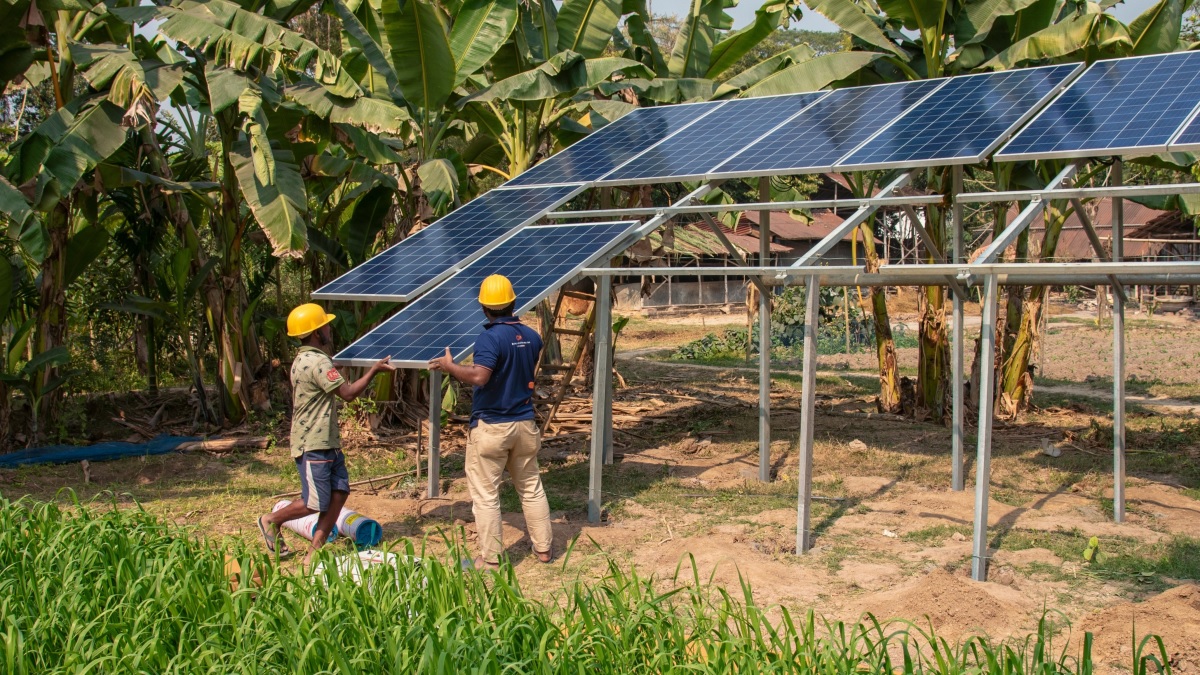Proactive investment facilitation is key to attracting funding in vital areas such as renewables, health and infrastructure for developing countries.
© Shutterstock/ARIJIT1604 | UNCTAD’s World Investment Report 2023 shows that developing countries need renewable energy investments of about $1.7 trillion annually but they attracted only $544 billion in 2022.
The world urgently needs a surge in financing for sustainable development.
At the halfway mark between the adoption of the UN Sustainable Development Goals (SDGs) in 2015 and their 2030 finish line, developing countries currently face a gaping SDG-investment gap of approximately $4 trillion annually.
To get the SDGs back on track, increasing the quantity of investment is not enough. There’s also the quality – the extent to which investment delivers concrete sustainable development benefits.
Worldwide, investment facilitation policies are advancing through international, regional and bilateral initiatives. When geared towards sustainable investment, such policies can support countries to unlock much-needed capital for the SDGs.
And this is one of the key topics UNCTAD’s upcoming 8th World Investment Forum will tackle, bringing key stakeholders including government ministers, international organizations, as well as CEOs of leading companies and stock exchanges.
The forum is set for 16 to 20 October in Abu Dhabi. Register to attend.
But what is investment facilitation?
Investment facilitation seeks to make it easier for investors to establish or expand their investments, as well as conduct their day-to-day business in host countries.
UNCTAD helps governments understand the full range of actions that overcome ground-level obstacles to investment. It provides them with a global action menu for investment facilitation, which it uses to deliver technical assistance and capacity-building in developing countries.
It has also been doing so through its investment policy reviews and other advisory services for individual countries.
Investment facilitation includes providing information to investors, making rules and regulations transparent, and streamlining administrative procedures.
In many countries, there’s much scope to simplify procedures, permits and licenses, and better explain to businesses exact documents and paperwork necessary to get their operations approved.
‘Digital red carpet’ for investment
To change for the better, digital government tools, such as information portals and online single windows, can make a huge difference in facilitating investment.
Supported by UNCTAD, developing countries are catching up in this regard.
Since 2016, the number of countries with online investment information portals increased from 130 to 169. Those with single windows went up from 29 to 75. Their quality also improved.
“It is the equivalent of rolling out a digital red carpet for investment and sparing businesses weeks or even years of queuing in government offices and chasing paper,” says Richard Bolwijn who leads investment research at UNCTAD.
Digitalization pays off
In Benin, the number of company registrations doubled over the last two years. In Iraq, that increase was five-fold between 2021 and 2022.
Bhutan also moved online all permits and licenses that companies require, from running bus transport services to piloting a drone.
In Mali, UNCTAD has collaborated with the country’s medical regulatory agency and pharmaceutical sector to streamline and digitize approval processes, reducing processing times from two years to three months.
This move will not only bring more investment to Mali’s pharmaceutical sector but also greater access to vital vaccines and life-saving drugs for people there.
Unleashing potential of investment treaties
UNCTAD research shows that new-generation international investment agreements (IIAs) are increasingly embracing investment facilitation features across all continents.
It shows that over half of IIAs signed since 2015 contain transparency requirements for investment measures. The share of other investment facilitation provisions related to host countries’ regulatory environment is also growing.
Yet a few exceptions aside, new IIAs continue to lack clear and proactive investment facilitation commitments specific to sustainable investment, or the necessary technical assistance and capacity-building for developing countries.
Practical ways to facilitate SDG investing
To tap into IIAs’ underused potential as a driving force for sustainable development, UNCTAD spells out a set of policy options and on-the-ground actions.
These would help governments transform their IIAs into tools to effectively channel investment towards sustainable development and further national investment facilitation priorities.
UNCTAD urges governments to:
- Incorporate proactive facilitation and promotion commitments targeting priority SDG sectors – such as renewable energy, agriculture, water and sanitation – and favouring underrepresented communities.
- Strengthen the sustainable development aspect of cooperation mechanisms, through clear workplans, the inclusive participation of relevant stakeholders, and the establishment of "investment committees" responsible for reporting implementation progress.
- Facilitate access to relevant support instruments – such as development finance – for sustainable investors from all IIA partners at different levels of economic development.
- Prioritize regulatory measures to reduce ground-level hurdles that are most relevant to priority SDG sectors, as well as create an environment conducive to technology transfer and diffusion.
- Use IIAs as a cooperation platform to achieve nationally defined goals, through enhancing technical assistance, network building and the exchange of best practices.

